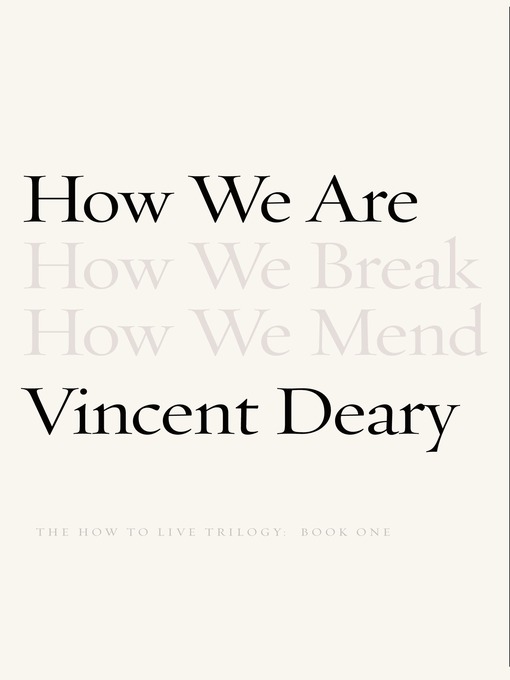The first book in a major new trilogy, How to Live: How We Are, How We Break, and How We Mend
We live in small worlds.
How We Are is an astonishing debut and the first part of the monumental How to Live trilogy, a profound and ambitious work that gets to the heart of what it means to be human: how we are, how we break, and how we mend.
In Book One, How We Are, we explore the power of habit and the difficulty of change. As Vincent Deary shows us, we live most of our lives automatically, in small worlds of comfortable routine—what he calls Act One. Conscious change requires deliberate effort, so for the most part we avoid it. But inevitably, from within or without, something comes along to disturb our small worlds—some News from Elsewhere. And with reluctance, we begin the work of adjustment: Act Two.
Over decades of psychotherapeutic work, Deary has witnessed the theater of change—how ordinary people get stuck, struggle with new circumstances, and finally transform for the better. He is keenly aware that novelists, poets, philosophers, and theologians have grappled with these experiences for far longer than psychologists. Drawing on his own personal experience and a staggering range of literary, philosophical, and cultural sources, Deary has produced a mesmerizing and universal portrait of the human condition.
Part psychologist, part philosopher, part novelist, Deary helps us to see how we can resist being habit machines, and make our acts and our lives more fully our own.

-
Creators
-
Series
-
Publisher
-
Release date
December 30, 2014 -
Formats
-
Kindle Book
-
OverDrive Read
- ISBN: 9780374713218
-
EPUB ebook
- ISBN: 9780374713218
- File size: 1032 KB
-
-
Accessibility
-
Languages
- English
-
Reviews

Loading
Why is availability limited?
×Availability can change throughout the month based on the library's budget. You can still place a hold on the title, and your hold will be automatically filled as soon as the title is available again.
The Kindle Book format for this title is not supported on:
×Read-along ebook
×The OverDrive Read format of this ebook has professional narration that plays while you read in your browser. Learn more here.